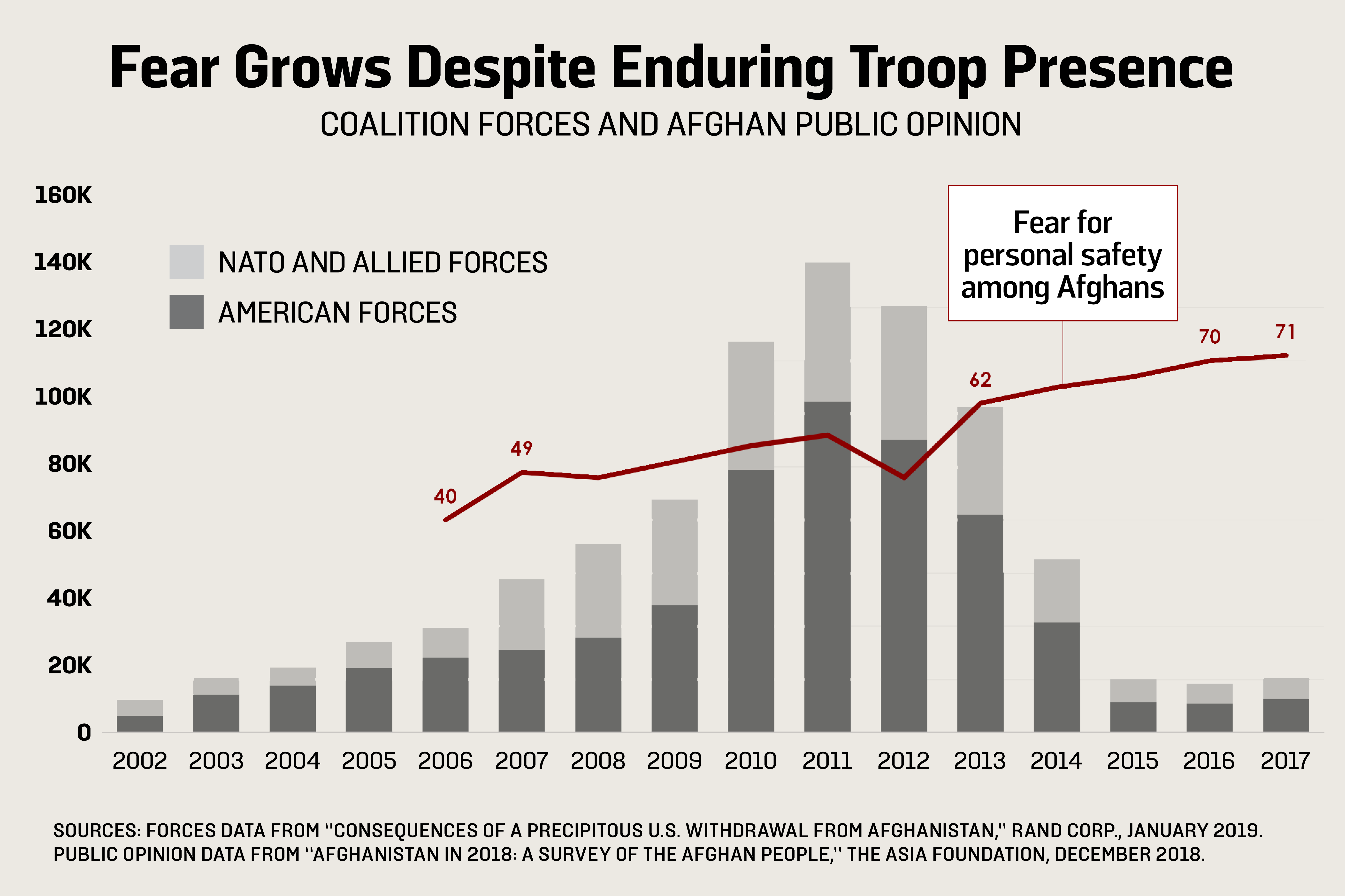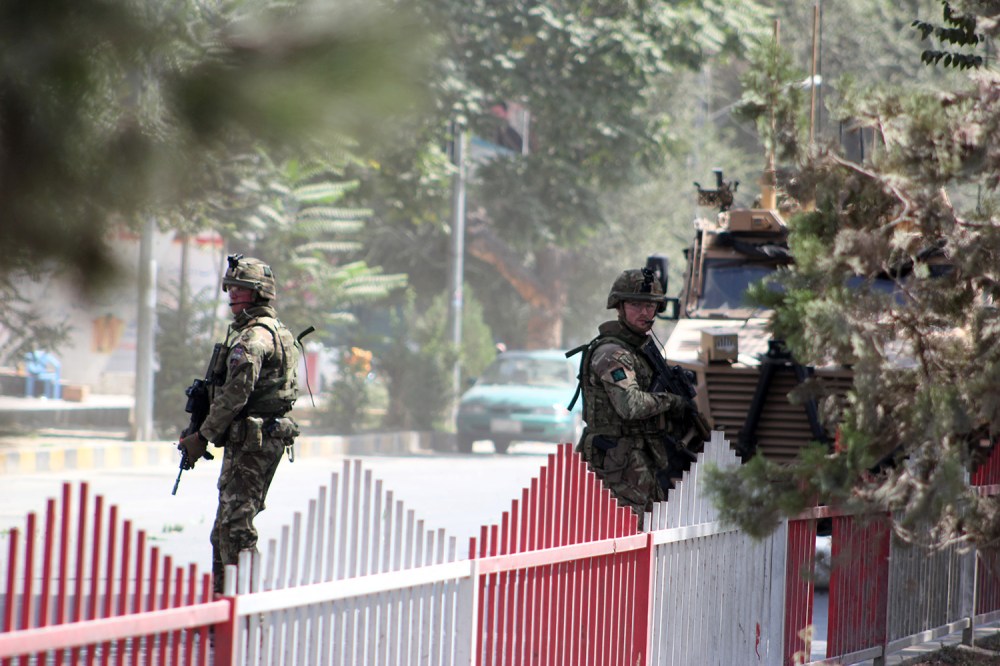As a short answer;
India, surely has been the only winning party in Afghanistan, not from today but from the day US invaded the country.
Circumstances, which make me believe so....
India not only is winning all of the reconstruction $.... directly or indirectly, but also have occupied a strategic position in the status quo.
India and Iran had been strategic partners against Pakistan, ever since shortly after Islamic revolution, while US installing an Afghan regime, which is nothing besides Indo /Iranian puppies, was surely going to be disaster recipe for Pakistan.
Now this was a dangerous situation for Pakistan from out right, which they fail to gauge correctly, but also for US in longer run, which they failed to gauge correctly.
So today, US is just a force sitting in safety zone of few KM^2 of a military city, stretching from Pak border to Qandahar city, which is not only a strategic location but also the best safety zone US can ever have any where on Afghan soil.
However this doesn't change the fact that even by sitting in safety zone, doesn't bring it's operational costs to zero and neither it's winning them any friends in Afghanistan.
What US need to ponder is why India has more friends in Kabul than Americans, while US is investing in reconstruction!
US committed a strategic mistake by letting Indians working against Pakistan under their umbrella, as in case of TTP etc..
Actually, i'm surprised how Pakistan's foreign office is even willing to talk to Americans, after loosing thousands of security personals... may be in Pakistan institutions under control of civilians are happy with the situation, where army is kept under-pressure... memo gate scandal, dawn leaks are examples and waiting some thing similar from current regime as well.
On the contrary, US.., if had chosen Pakistan as partner, at least they would have been better advised.
Well that's how strategic mistakes are recorded in history, and i don't see a quick correction course for US mistakes in Afghanistan.
Actually, i was surprised to see Pakistan's govt. agreeing to facilitate negotiations of US with native people.
It also hint that, the current regime of Afghanistan are bunch of foreigners and we are witness to the changing demography of Afghanistan, how it came about, no one knows. Anyhow, what is done is done.
In given circumstances, best possible scenario for US is to dismantle the govt. of foreign Indo /Iranian puppies and leave Afghanistan for good. This would be a first step on winning confidence back among the native people.
Why US want to stay put at all costs, will remain a mystery.
Second biggest looser obviously has been Pakistan, who lost precious lives, booming economy, general prosperity, civilized society, concept of nationhood, strategic allies, actually all of it.
Fencing the border has generally stabilized the situation related to militant attacks, which should have been further consolidated by the civilian regime through political process and diplomatic efforts of reaching out to UN on the issue of terrorism emanating from Afghan soil. Wherein they failed, despite having all the evidence.
Why... it's anyone's guess, my guess.... all that evidence connects US-Iran and India as partners in crime. Which may than lead to implicating all the three Isis evil, as well and who knows, where does the buck stops.
This is why all the 3 stated countries joined hand to influence the politics of Pakistan and there off it's foreign policy. There major success is stopping Pakistan from sharing intel. on Indo-Iran nexus in the regional instability, with strategic regional allies.
India, surely has been the only winning party in Afghanistan, not from today but from the day US invaded the country.
Circumstances, which make me believe so....
India not only is winning all of the reconstruction $.... directly or indirectly, but also have occupied a strategic position in the status quo.
India and Iran had been strategic partners against Pakistan, ever since shortly after Islamic revolution, while US installing an Afghan regime, which is nothing besides Indo /Iranian puppies, was surely going to be disaster recipe for Pakistan.
Now this was a dangerous situation for Pakistan from out right, which they fail to gauge correctly, but also for US in longer run, which they failed to gauge correctly.
So today, US is just a force sitting in safety zone of few KM^2 of a military city, stretching from Pak border to Qandahar city, which is not only a strategic location but also the best safety zone US can ever have any where on Afghan soil.
However this doesn't change the fact that even by sitting in safety zone, doesn't bring it's operational costs to zero and neither it's winning them any friends in Afghanistan.
What US need to ponder is why India has more friends in Kabul than Americans, while US is investing in reconstruction!
US committed a strategic mistake by letting Indians working against Pakistan under their umbrella, as in case of TTP etc..
Actually, i'm surprised how Pakistan's foreign office is even willing to talk to Americans, after loosing thousands of security personals... may be in Pakistan institutions under control of civilians are happy with the situation, where army is kept under-pressure... memo gate scandal, dawn leaks are examples and waiting some thing similar from current regime as well.
On the contrary, US.., if had chosen Pakistan as partner, at least they would have been better advised.
Well that's how strategic mistakes are recorded in history, and i don't see a quick correction course for US mistakes in Afghanistan.
Actually, i was surprised to see Pakistan's govt. agreeing to facilitate negotiations of US with native people.
It also hint that, the current regime of Afghanistan are bunch of foreigners and we are witness to the changing demography of Afghanistan, how it came about, no one knows. Anyhow, what is done is done.
In given circumstances, best possible scenario for US is to dismantle the govt. of foreign Indo /Iranian puppies and leave Afghanistan for good. This would be a first step on winning confidence back among the native people.
Why US want to stay put at all costs, will remain a mystery.
Second biggest looser obviously has been Pakistan, who lost precious lives, booming economy, general prosperity, civilized society, concept of nationhood, strategic allies, actually all of it.
Fencing the border has generally stabilized the situation related to militant attacks, which should have been further consolidated by the civilian regime through political process and diplomatic efforts of reaching out to UN on the issue of terrorism emanating from Afghan soil. Wherein they failed, despite having all the evidence.
Why... it's anyone's guess, my guess.... all that evidence connects US-Iran and India as partners in crime. Which may than lead to implicating all the three Isis evil, as well and who knows, where does the buck stops.
This is why all the 3 stated countries joined hand to influence the politics of Pakistan and there off it's foreign policy. There major success is stopping Pakistan from sharing intel. on Indo-Iran nexus in the regional instability, with strategic regional allies.
Last edited:


